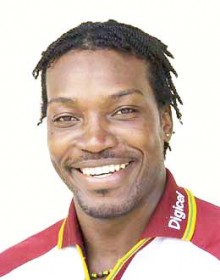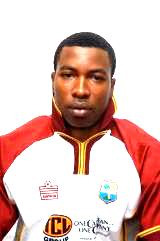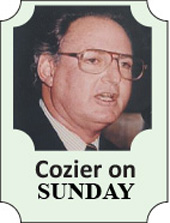If it wasn’t already so, it has become clear that the International Cricket Council (ICC) and the individual boards that are its full members need to properly sort the matter out.
The reasons for the predicament are easily identifiable.
From the start, T20 cricket filled grounds, pulled sponsors and excited television networks. There was quick money to be made, always a compelling reason for embracing any concept, in this case even more so with Test cricket’s diminishing popularity outside of England.
The International Cricket Council (ICC) promptly jumped on the bandwagon with a
T20 World Cup in 2007. India won it first up, the effects of which on the game’s
most populous and passionate people was the same as the triumph in the 50-overs
equivalent in 1983.

Now backed by a booming economy, Lalit Modi spotted its profit-making potential
and persuaded the Indian board to grasp it with a system as revolutionary as Kerry Packer’s World Series Cricket 30 years earlier.
The annual Indian Premier League (IPL) was formed, with franchises flogged at
exorbitant rates to enthusiastic business moguls and Bollywood film stars.
Television networks fought over the rights with cheques that would erase the debt of some small Caribbean states. Top international players were signed on at heart-stopping fees to boost interest.
Bouyed by the IPL’s immediate success, the Indians moved to pioneer another
venture. After a gestation period of less than a year, it conceived the T20 Champions League, a tournament between national territorial champion teams.
No major cricketing country could afford to ignore the phenomenon. All had to
have their own domestic T20s, Australia’s “Big Bash” and its New Zealand equivalent open to two overseas players a team. England was obliged to follow suit.

All the while, the ICC has not only maintained its own programme but often added
to it. The upshot was easily read but, with contrasting agendas, early warnings were
difficult to heed.
At the first T20 World Cup, only a couple of months after his installation as
West Indies Cricket Board (WICB) president, Julian Hunte, spoke of his concern that
such developments could have on West Indies cricket. With his own organisation financially strapped, he could foresee the lure for our best players.
It has taken a little time but Hunte’s worry has been finally confirmed with the decisions of Gayle, Bravo and Pollard.
Not that it was surprising. Gayle and Bravo had already flagged their priorities by delaying their respective returns from the IPL to just days before a Test series. All three have stated their commitment to West Indies cricket but their availability to fulfil the recent stipulations for selection cannot be guaranteed.
It leaves the WICB in a quandary over the captaincy – for Gayle is the incumbent
and Bravo his vice – and leaves the status of two of their most prominent players in doubt.
A year ago, when Gayle fronted at Lord’s just before the first Test after staying on to turn out for the Kolkata Knight Riders in South Africa, Dinanath Ramnarine, head of the West Indies Players Association (WIPA), warned that the situation was bound to face others in future. “The shorter form of the game is far more lucrative than the longer,” he told Cricinfo. “At the end of the day, as an international player, you have a certain timeframe in which you play cricket.”
“What’s going to happen is players are going to choose,” he added. “The ICC and
the governing bodies must recognise that there needs to be a structure and they can’t be the ones who are just concerned with making as much money as possible.”
Clearly the players are also “concerned with making as much money as possible”.
But the Australians’ recent quotes have centred on the early release of players from T20 domestic contracts to properly prepare for national duty and on the physical pressures exerted on top players by the virtual non-stop circuit, from Tests, One-Day and T20 Internationals to the IPL, Champions League, Big Bash et al.
Their renewed concern was triggered by the hurried dash Australia’s Mike Hussey
and Doug Bollinger had to make from South Africa, where they played in the Champions League final for the Chennai Super Kings, to arrive in India two days before first Test.
Hussey revealed that when he spoke to Cricket Australia, to whom he is contracted, about being released from the final (a distinct contrast to the earlier position of Gayle and Bravo) “the decision was that their players were going to be available for the Twenty20 campaign so there was nothing I could
really do about it.”
“I just had to grin and bear it really, get here as quick as I possibly could after the final and just prepare as well as I can,” he said.
For Clarke, who did not put his name up at the IPL auctions, the solution is simple.
“For me, we all have a choice,” he said. “You don’t have to play IPL. You don’t
have to play Champions League…If, as an individual player, you are tired or your
body needs some rest, you need to make that commitment outside of international cricket. You need to, maybe, play less in the IPL or play less in the Champions League.”
Australia captain Ponting, no enthusiast of T20, probably summed up the general
feeling after the first Test in which the unprepared Hussey scored 17 and 28 and
Bollinger broke down in the second innings after eight overs.
“There are a lot of good lessons that can be learnt from the last week as far
as our preparation goes, and probably even for the Indian players. All we can do is try and get our case across, and I know the individual players concerned have certainly done that.”
Now it’s up to the ICC to respond.





